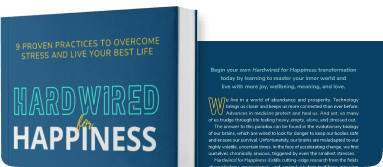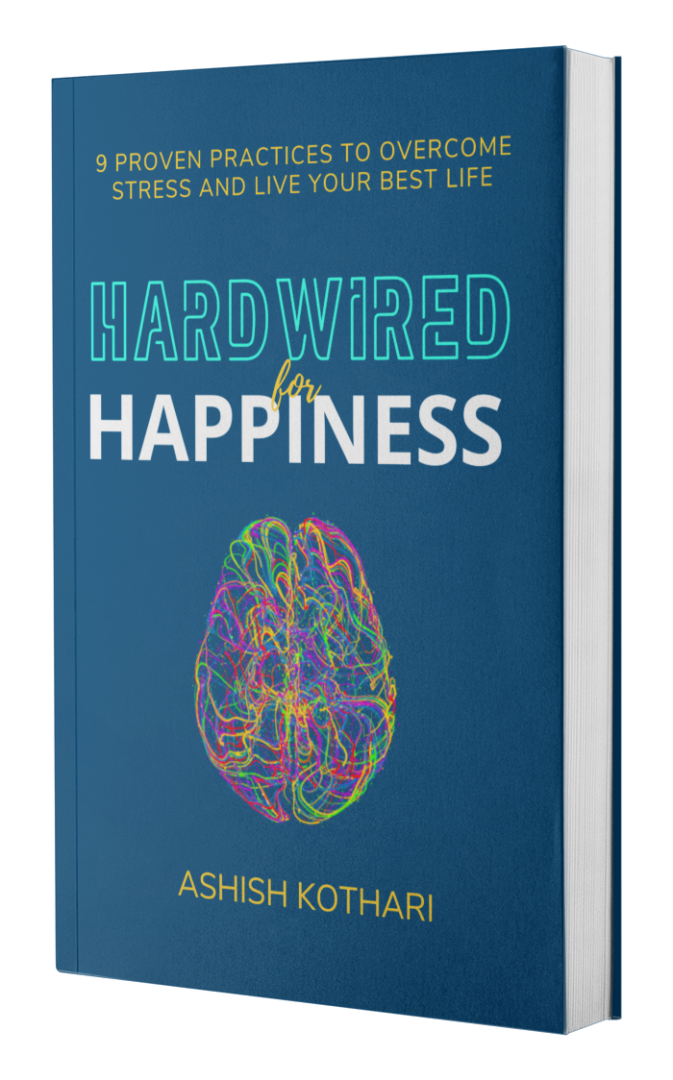Overcoming Self-Bullying to Embrace Holistic Health with Anna Marie Frank

We’ve all got an inner critic who whispers doubts and insecurities in our heads. But for some, this critic turns into a full-blown bully who attacks our sense of self-worth and happiness. Self-bullying is the silent killer of potential, and it can poison our overall well-being as well. In this article, Anna Marie Frank, Founder of Happy Whole You, shares tips for overcoming self-bullying to improve your health.
“Our thoughts, mind, emotions, and body are all interconnected into the experience we’re having. We can always shift out of an experience that might not be serving us or the world. It’s okay to experience hardships. The important thing is not to stay in it.”
– Ashish Kothari
When faced with challenges, it’s common for us to turn our critical lens inward and question our abilities or self-worth. Sometimes, these doubts can go over the line to the point that they negatively affect our mental well-being. That’s when they turn into self-bullying.
How to recognize self-bullying
Self-bullying is essentially treating yourself with the same harshness and negativity you’d never tolerate from someone else. Recognizing the signs of self-bullying can be tricky because it often feels like normal self-talk. But there’s a subtle shift from healthy self-improvement to harmful self-criticism.
For instance, constantly pushing yourself without acknowledging your achievements, or feeling like nothing you do is ever good enough, might indicate a deeper issue. Moreover, Anna explains that self-bullying often manifests in physical symptoms, such as headaches, difficulty sleeping, and digestive issues. Overlooking these signs is a perfect recipe for disaster.

By pinpointing the areas where you’re toughest on yourself, you can focus on developing self-compassion. Identifying these signs can prevent the escalation of self-bullying into more serious mental health issues like anxiety or depression.
Mental health and medication
Self-bullying often reinforces negative thought patterns, strengthening neural connections associated with stress and anxiety. Over time, chronic self-bullying can lead to more severe mental health conditions. Often, as a response to this internal pressure, we resort to any kind of medication to fix ourselves, but it’s not always a smart move.
When it comes to happiness and mental health, the brain is the only organ doctors prescribe mind-altering medications to without a way to scan or test brain chemistry. It’s a shot in the dark, so ask questions and try to adjust things before going on medications. Medication should be the very last resort for shifting mental health.
“Our brain is the strongest pharmacy on planet Earth. The moment we choose to speak of love or even say the word love, it feels very different in the body than saying the word hate.”
– Anna Marie Frank
Hack your brain chemistry
Medication can be a valuable tool for managing the symptoms of stress and anxiety caused by self-bullying, but it’s definitely not a one-size-fits-all solution. I firmly believe in the power of practicing happy habits like gratitude and shifting to a positive mindset. Anna also mentions how you can hack your four main brain chemicals:
- Serotonin – Serotonin is a mood stabilizer that contributes to feelings of well-being and happiness. Boost your serotonin production by spending time outside in the sunlight. Sauna therapy also helps; stepping out into the cool air after a sauna session provides a rush of serotonin. Include pineapple, citrus fruits, turkey, and salmon in your diet.
- Endorphins – Endorphins are pain-relief hormones that also produce a feeling of euphoria. To hack your endorphins, engage in physical activities like running. Or try Anna’s tip: put your hands together, rub them, and smile or laugh.
- Oxytocin – Oxytocin is often referred to as the “love hormone” and is associated with bonding and social interactions. To boost your oxytocin, try giving someone or yourself a hug for 20 seconds or longer, holding hands, or kissing. Smile at someone, place a hand on their shoulder, and think positive thoughts.
- Dopamine – Dopamine plays a major role in reward-motivated behavior and feelings of pleasure. To get a dopamine boost, set and accomplish small tasks or goals. Eat foods rich in protein, such as lean meats, eggs, and beans, which provide amino acids. Acknowledging and celebrating your achievements also increases your dopamine levels.
Before reaching for any pharmaceutical or substance, know that there are many ways to create the chemicals in your brain and shift your experience through actions from within.
Key strategies to stop bullying yourself
We must learn to identify when that inner voice goes from a helpful coach to a relentless critic. Understanding your patterns of self-criticism allows you to challenge these negative thoughts and replace them with healthier ones. Anna shares three tips on how to shift away from self-bullying:
- Don’t Believe Every Thought – Recognize that not all thoughts are true or helpful. Be mindful of negative thoughts and choose not to believe them, especially when they make you feel like you’re not good enough.
- Use Movement and Being Outside as a Gift – Shift the perspective on physical activity from punishment to positive and loving action. Embrace being outside and moving your body as a privilege and a way to enhance your well-being.
- Nourish Your Body with Healthy Food – Change the neuro associations around food. View healthy eating as a way to nourish and heal your body, not as a diet or restriction. Understand the importance of giving your body the raw materials it needs to function properly.
Conclusion
It’s important to recognize that while challenges are inevitable, self-bullying is a choice, and it’s possible to navigate difficult times with greater self-compassion instead of negative self-talk. Remember that you have the power to take control of your narrative, and influence your thoughts, feelings, and actions. So, don’t let self-bullying hold you back from having the healthy and happy life you deserve.
Sometimes, we are our own worst enemy. We drown ourselves with negative self-talk to the point that it affects our mental health and well-being. Learn how to break free from the chains of self-bullying with expert insights from Ashish Kothari and Anna Marie Frank, Founder of Happy Whole You.
Learn more about Anna Marie at her LinkedIn.
Listen to the podcast with Ashish and Anna Marie below.
Access and subscribe to all of the episodes of the Flourishing Edge Podcast here.
Visit the REWIRE Program powered up by the HAPPINESS SQUAD Community and experience your shift within your 30-day risk-free trial today. Cultivate your Self-Awareness, Gratitude, Purpose, Community, and personal growth more through the 9 Hardwired for Happiness practices. Integrate simple and proven micro-practices grounded in the science of happiness and neuroscience of habit formation in 5 minutes a day.
Make Flourishing Your Competitive Edge.


